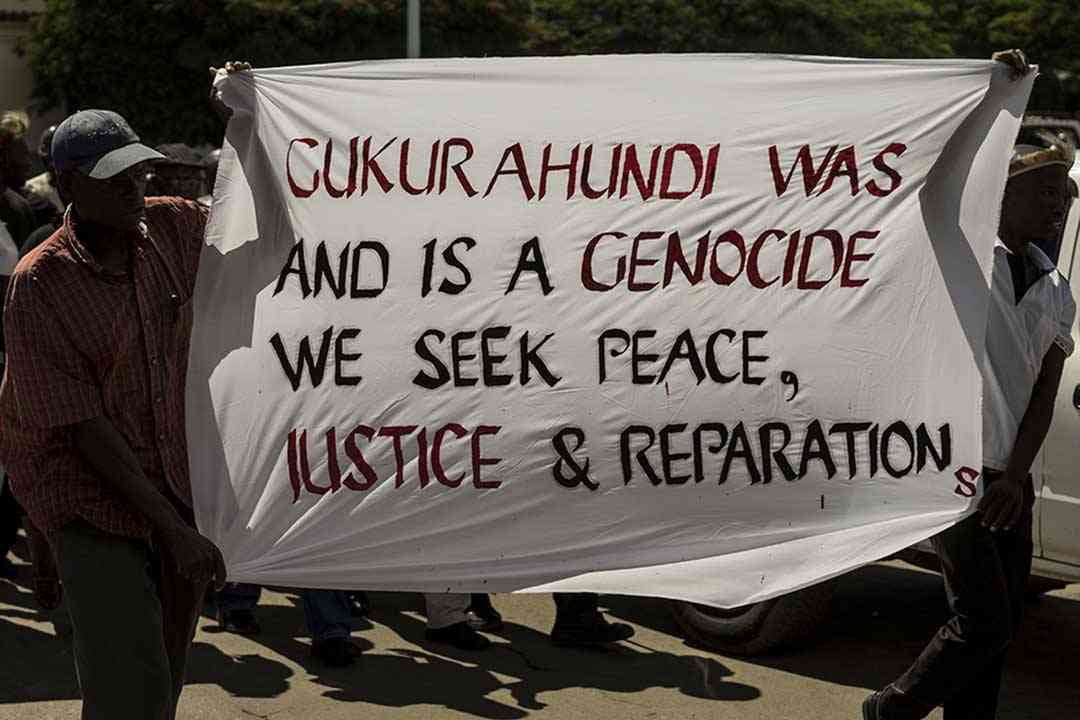
FINALLY, after about 40 years, restorative justice may take place in Matabeleland and the Midlands. After decades of failing to acknowledge, apologise and pay reparations on Gukurahundi victims, something may happen to heal Zimbabwe. The nation has been wounded; the bloody post-independence conflict of 1983-1987 was never resolved.
The chief perpetrator, the late former president Robert Mugabe brutally silenced those who dared to remind him of the Gukurahundi massacres.
Mugabe committed atrocities in Matabeleland, as he claimed to fight “dissidents” using the North Korean-trained 5 Brigade. Thousands of people were killed. Many were injured.
Some pregnant women were ripped open. It was a horrendous era.
As sensitive as the crimes were, they could not be wished away. The murders could not be swept under the carpet.
Hence, a de-nazification measure is a must.
South Africa after the dark era of the apartheid rule, established a Truth and Reconciliation Commission chaired by the late cleric Archbishop Desmond Tutu.
It was a restorative justice system that accorded victims a chance to speak out.
- Is military's involvement in politics compatible with democracy?
- Feature: Is Auxillia following in 'Gucci' Grace's path?
- Mnangagwa govt harasses opposition with arrests, jail
- Displaced white farmers suffer major setback
Keep Reading
The process also provided amnesty to the wrongdoers. The Nelson Mandela-led process healed the nation, albeit with some limitations.
Thus, we live to see if the process led by Zimbabwe’s traditional chiefs and President Emmerson Mnangagwa will yield positive results.
As the public hearings start, restorative justice must prevail. Victims of Gukurahundi should be allowed to speak out freely without fear or intimidation.
At least the opening of the process by Mnangagwa is an indication that, finally, authorities are ready to permanently address the emotive issue.
Gukurahundi, has been a dark cloud lingering over Zimbabwe. It has been divisive. The nation has been divided along ethnic fault lines as Ndebele people blame the Shona for the 1980s bloody conflict, which forced the late Zapu leader Joshua Nkomo into the December 22 1987 Unity Accord with Mugabe’s Zanu PF.
The Unity Accord was a political solution to end the killings. But social justice has not been served.
The community engagements will, hopefully, result in victims given an opportunity to heal from the trauma.
Hopefully, the ongoing process will heal trans-generational trauma; those who need to exhume and rebury their loved ones should be allowed to do so.
This may bring closure. As much as it is sensitive, we cannot bury heads in the sand; national healing is long overdue.
This is why some politicians in Matabeleland have been advocating for a “Mthwakazi nation”. They have been lobbying, though unsuccessfully, for the secession of Matabeleland.
The underlying reason for this is such unresolved issues as Gukurahundi; there is no fifth column or third force. It's the hatred the many people of Matabeleland harbour against the government over past wrongs. If remedied, Zimbabwe will emerge as a united nation.
Apart from bringing closure to the Gukurahundi matter, Matabeleland is also crying for development.
Undertones of marginalisation are evident. But it's time things changed for the better.
It's time inequalities, regionalism, tribalism and other social stratification pointers are blurred.
Living in denial like what Mugabe did is unhelpful; it hurts the nation; it breeds hatred and this explains why Zanu PF has over the years been unpopular in Matabeleland.
Zanu PF has over the years presented a monologic history in which it claims to be the progenitor of independent Zimbabwe.
The liberation struggle and postcolonial historiography has been misrepresented in many aspects. But Mnangagwa, to some extent, has been a revisionist.
This has seen the recognition of nationalists such as Ndabaningi Sithole as national heroes and now the Gukurahundi healing process. What is more important, however, is to have practical solutions to the victims of past wrongs.
Zimbabwe’s image has been tainted by political violence and the national healing process must remind political players that conflict is undesirable.
It has adverse consequences. Going forward, no one deserves to die or be injured at the altar of political expediency.
Peace and tolerance are cornerstones nation building.






